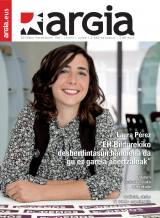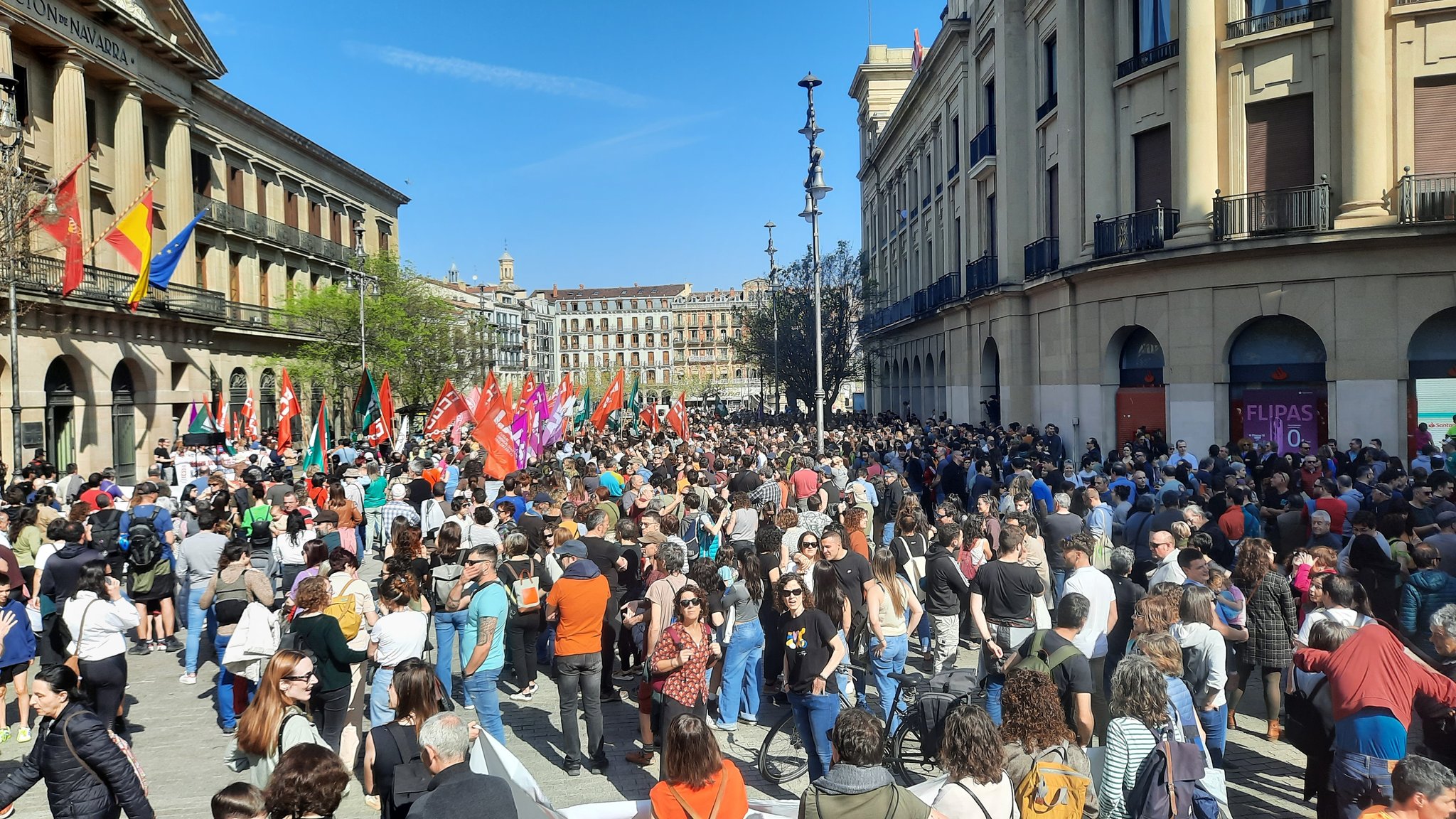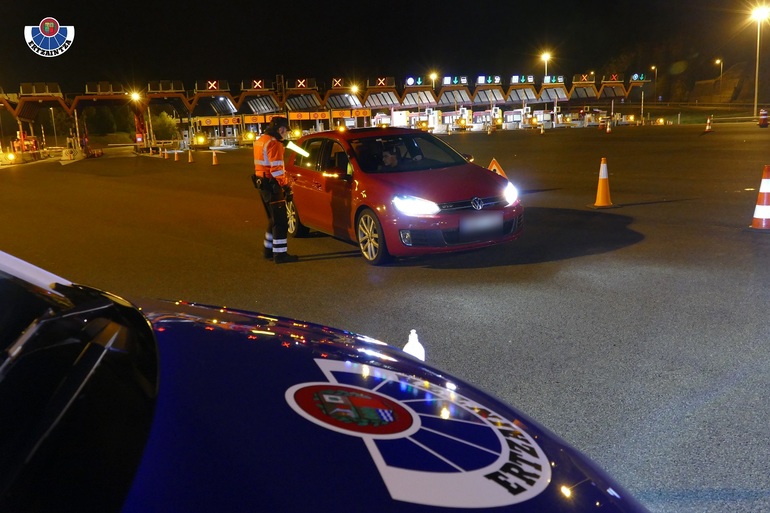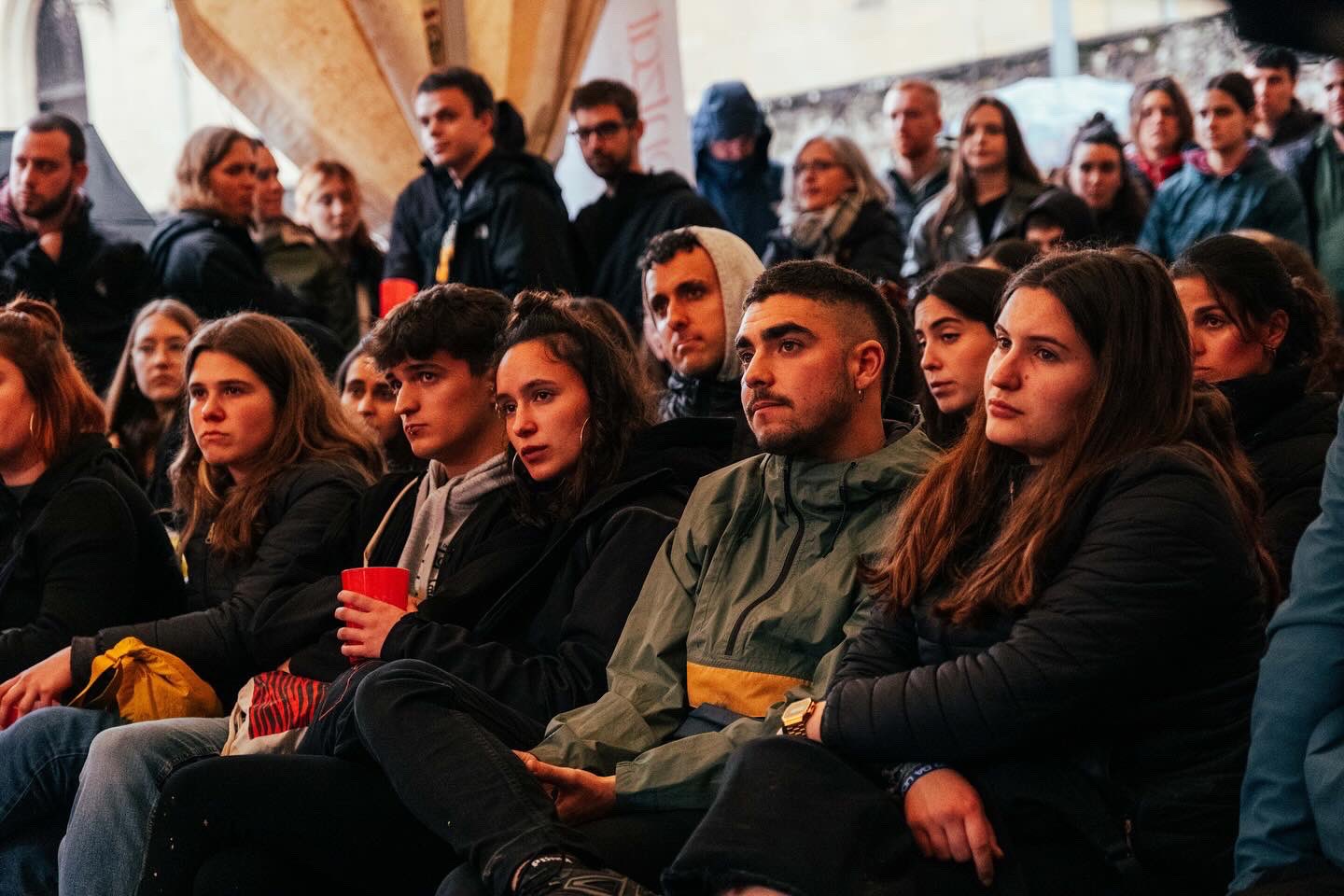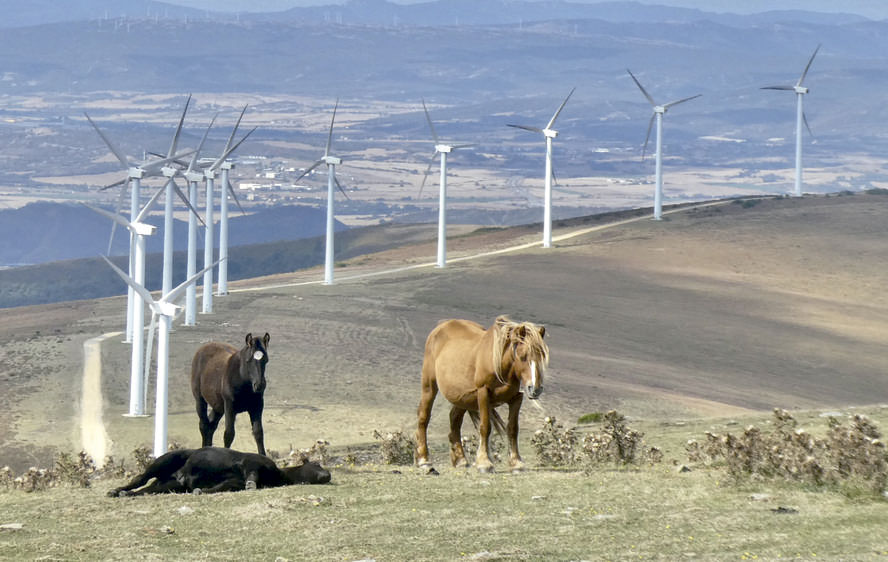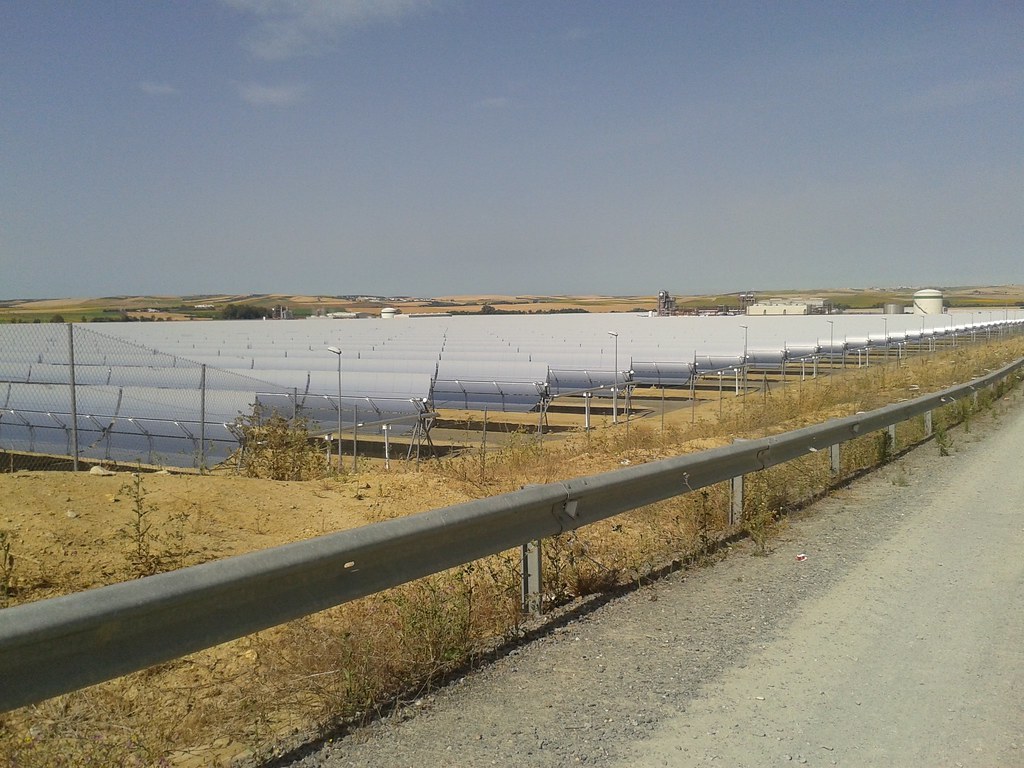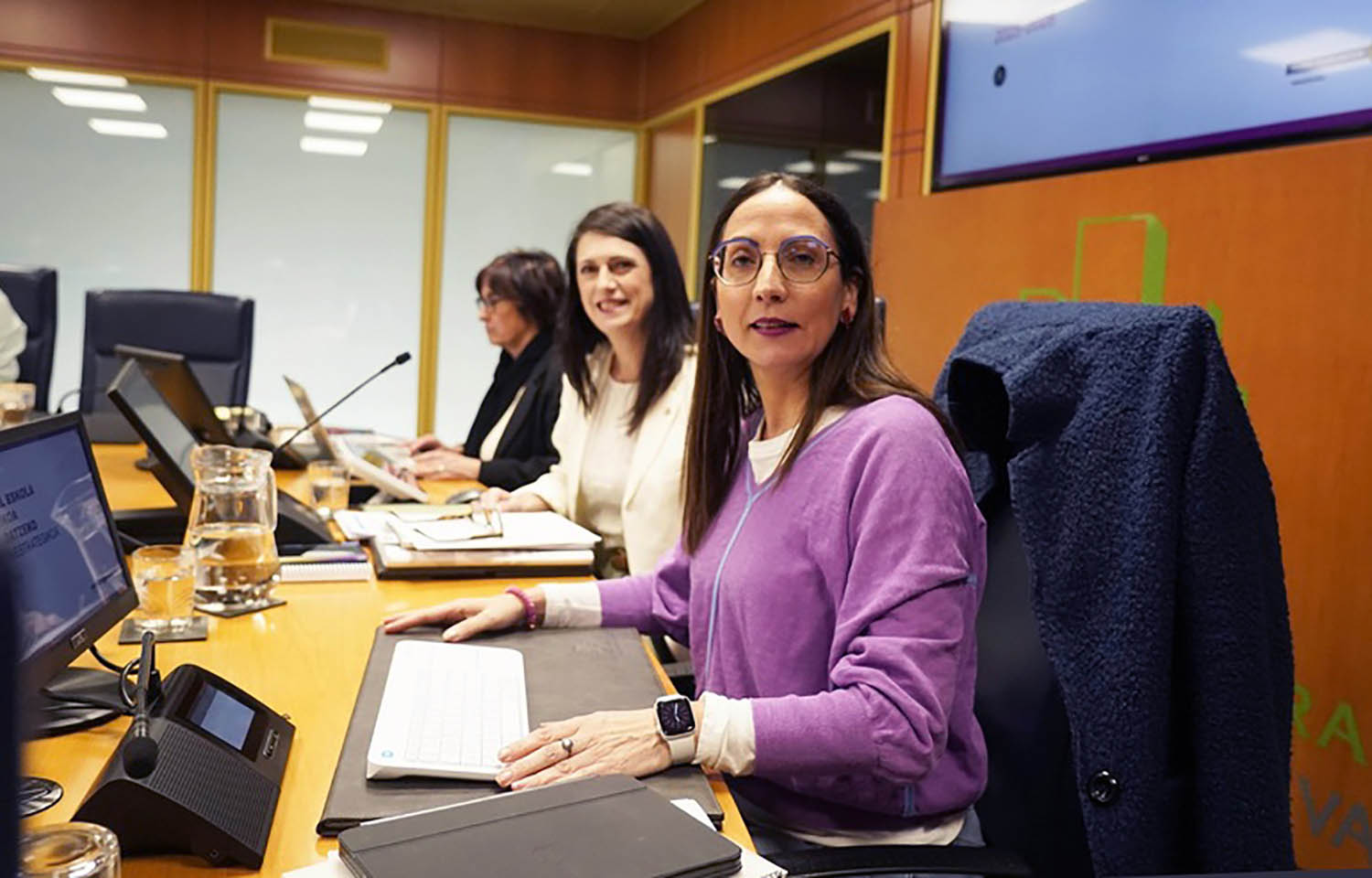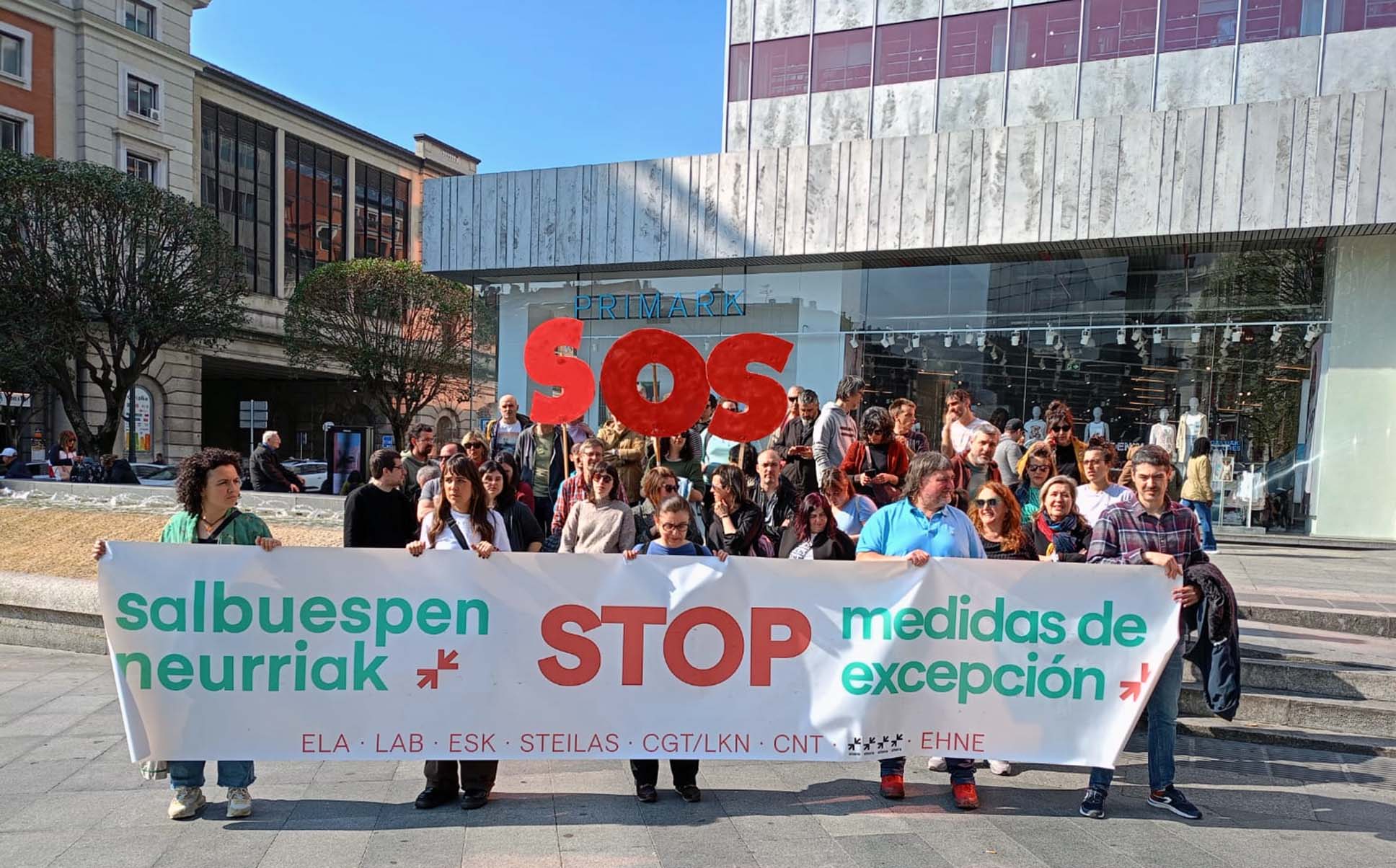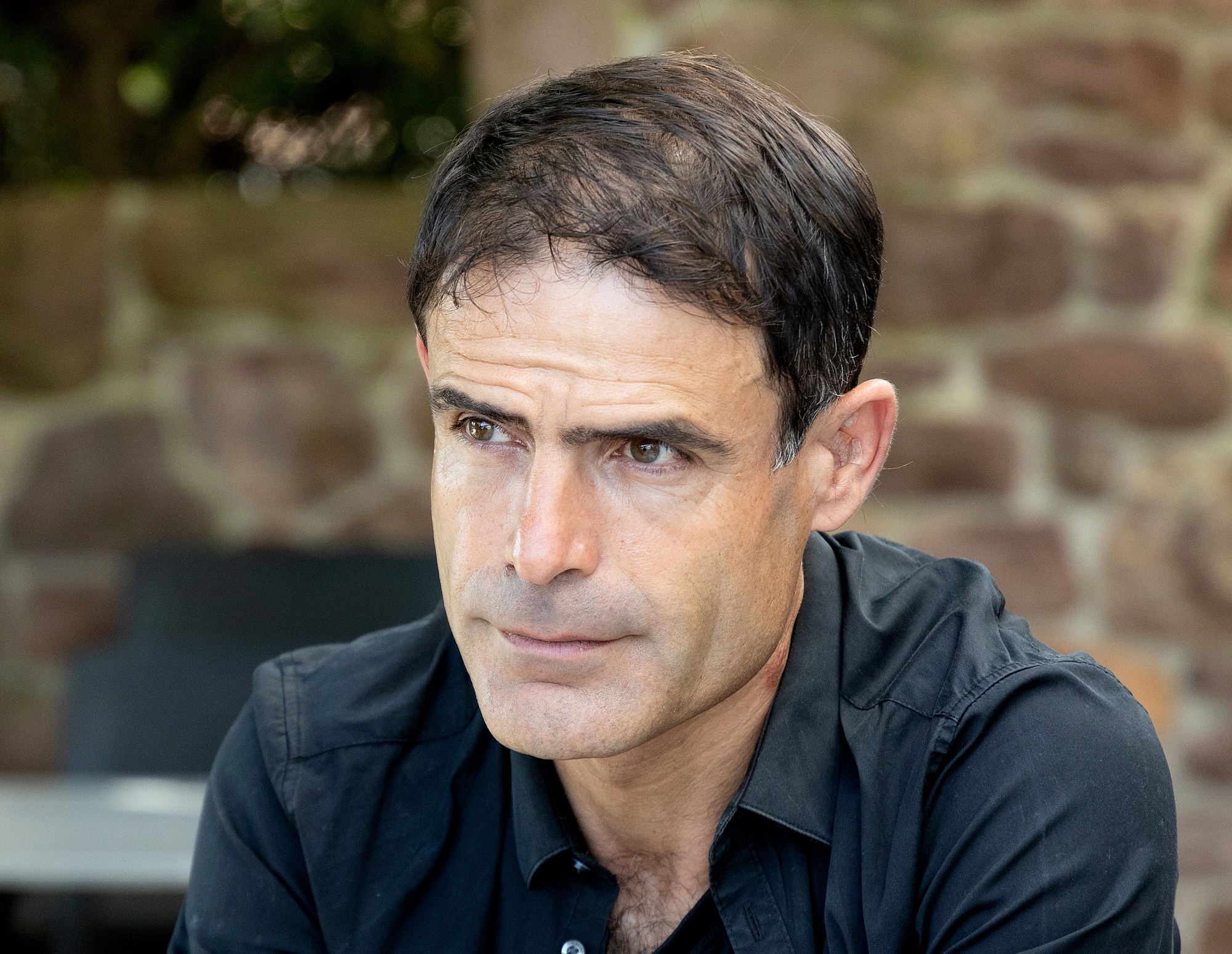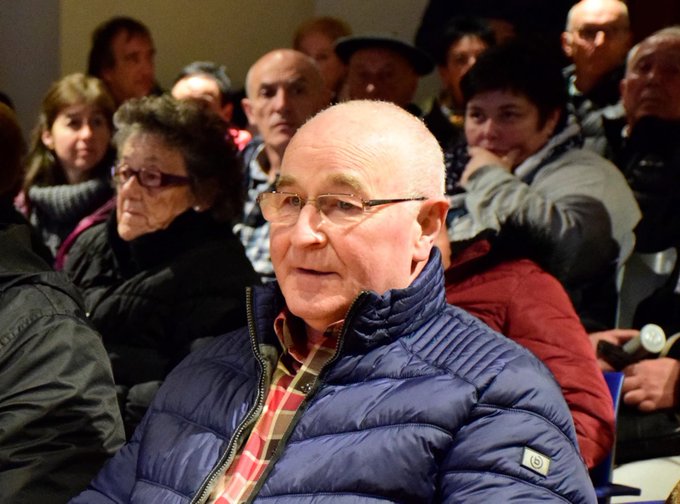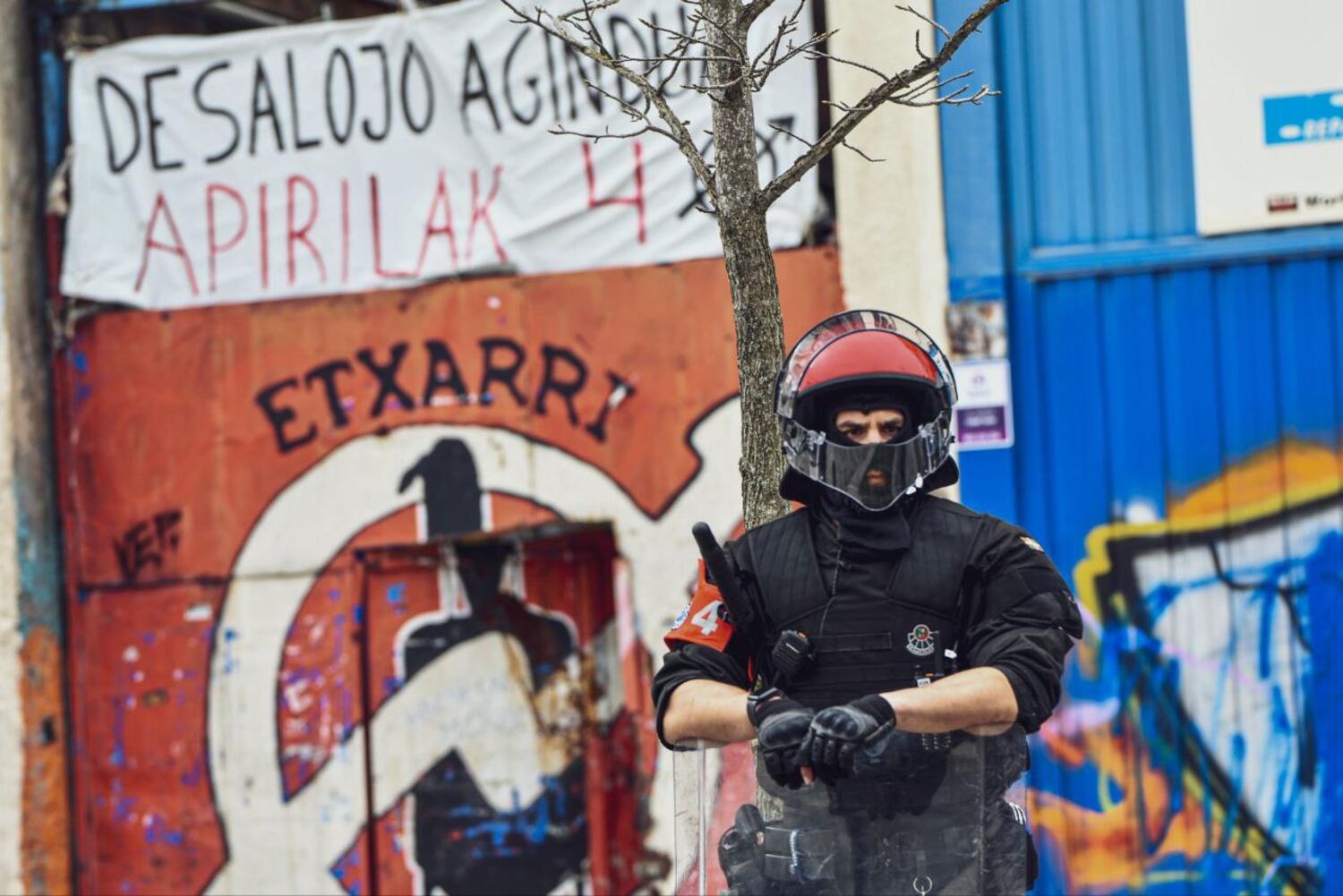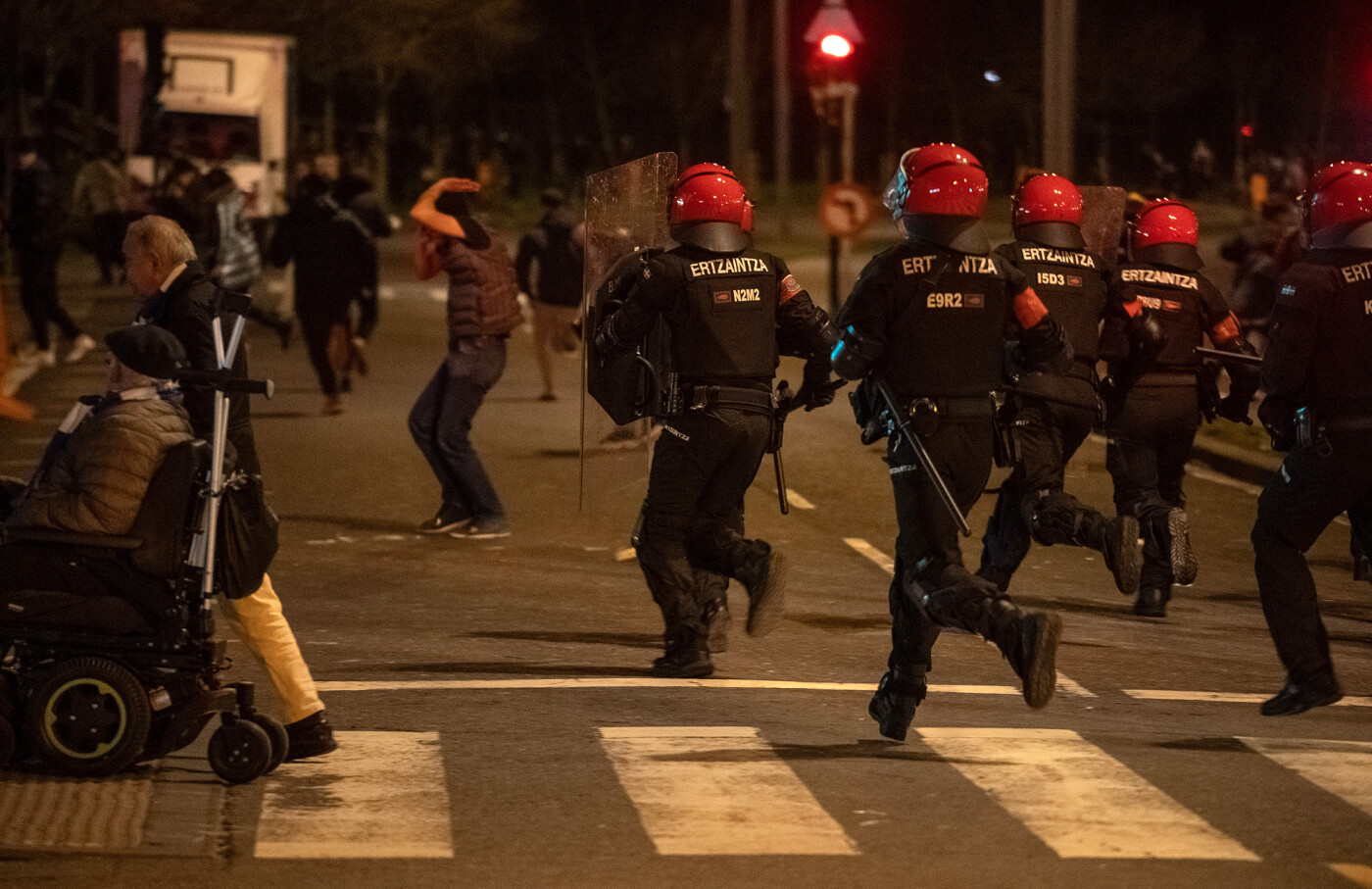Urretxu and Zumarraga, a unique village in several areas
- We have gathered Mikel Serrano (Urretxu, 1972) and Oihane Zabaleta (Zumarraga, 1979). If we look at the birthplaces, contrary to what seems, they are the mayors of Zumarraga and Urretxu, respectively. The first is a technical engineer and a member of the PSE-EE. Studied in Humanities and Business Sciences and second in EH Bildu. Two convergence profiles of both peoples.
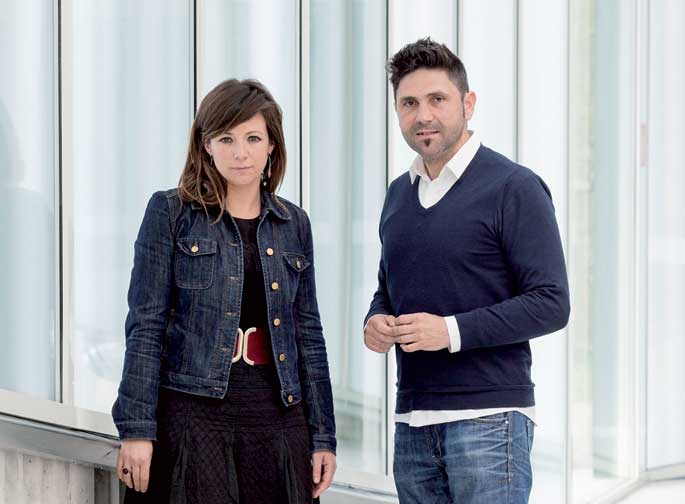
This is the municipal elections held on 24 October. Together with the assessment of this legislature, give us a couple of reasons to remain mayors.
Mikel Serrano: On the one hand, in Zumarraga we have seen a very significant transformation in the last two legislatures. For example, the use of Euskera has increased greatly. Kike Amonarriz – the words of the ETB Tribe on the occasion of the programme – confirmed this to me. Two: Those who have not been 10 years ago have seen the people clearer. This new Interpretation Center of the Old [in which we have done the interview] as a witness. Summary assessment: We have implemented 80 projects. I do not believe that there has been a people in Gipuzkoa who have done such a thing. We have invested EUR 11 million without affecting the municipal fund. We have the opportunity to carry out many projects because we have a healthy economy.
Oihane Zabaleta: I would like to remind you that I entered the town hall because the illegalization of Rubalcaba (former Spanish Interior Minister, of the PSOE) made others unable to present it. For me, working in institutions, on the street or in the business world is working for the people. Now I am in the institutions, but not forgetting where I come from, not forgetting the street. On valuation: the legislature has been difficult, the economic crisis has shook us hard, but at the same time we have had to internalise the shock of models, we have realised that we will not return to the former. Zumarraga has mobilized the cranes. We have not, because we have not had funding to make large infrastructures. Instead, we are creating a model with citizenship: the participatory process. Reasons to follow: to continue with a very good municipal group, and to complete long-term strategic projects with the peoples of the region of Urola Garaia (Legazpi, Ezdox-Itsaso).
What do you have to say about Euskalgintza?
M. Serrano: There are some topics about the use of Euskera. For example, that Urretxu is much more Euskaldun than Zumarraga. The responsibilities of the Basque Country are marked by the city council’s internal plans. We have taken significant steps in the internal use of the City Hall. The steps are not as much as we would like, but in Zumarraga the increase of the Euskera is evident, and that is not done and is not properly valued, it echoes the growth of use than in Urretxu in Zumarraga. I demand that we work together on the plan that we are developing these two peoples. The use of the street has increased by 5%, the increase has occurred in the two municipalities, in this sense we are a single town.
Oh! Zabaleta: In Zumarraga-Urretxu we have positively identified the new spaces of linguistic community. In the case of the sons and daughters of fathers and mothers who are euskaldunifying, in the process of transmission, we are working together the two peoples. A single Euskera forum has been set up. However, I am not so optimistic. There are, of course, the limitations that put us in our demarcation, set out by Mr McMahon. Urkijo from Madrid or Vitoria. For example, the linguistic rights affirmed by the Basque Law or UNESCO, but when in practice there are obstacles we do not talk about linguistic conflict because we want to be in a comfort situation. Because we don't accept, by self-critiquing, the misery of the monolingualism that we have inside the house. I've worked in the Basque world, and because I want my colleagues who work in the political and leadership fields to talk beyond knowledge. We politicians must set an example, but I see contradictions. Mikel is Euskaltzale, speaks very well Basque and facilitates those roads. But there's a double game. A number of members of the Socialist Party wish to limit the presentations of the Commonwealth: They call me "Speak in Spanish." They don't get it because I'm stuffed. I therefore have to live up to the linguistic conflict. The fact that Mikel and I speak in Basque makes it easier for us to understand it better on some issues. In Spanish, I wouldn't have the close relationship I have with him. Right, Miguel?
The PSE-EE Secretary General, Idoia Mendia, has stated that Euskera is a language for intimacy. The mayor of Zumarraga?
M. Serrano: I have lived Euskera as a mother tongue – I have the first reference in intimacy with my grandmother – in intimacy, but the mayor of Zumarraga uses it daily in his duties. From the very first moment I leave the house I speak in Basque. Likewise, the citizens' relations in the City Hall are guaranteed to be carried out in full in Basque. I use Euskera in all areas of life.
The mayor of Urretxu referred to the participation of citizens in the demonstration. How have you worked on this option?
Oh! Zabaleta: We've turned the word participation into a cliché by using it. I differentiate mechanisms and processes of integral participation. Participation can be an action. There's a project and it's given to citizens to choose from. It is a very democratic mechanism. Citizenship chooses and its contribution is respected. But the participatory process that we believe is another, which is carried out based on the concerns that arise from the beginning of the process. From the design, sharing the incidences that occur next, we realized the action plan with the citizens. That's the whole process, that's what we're assuming in its entirety. In Urretxu we began in 2012 this type of process of integral participation to know whether or not citizens really want to participate in politics. Because, of course, we put in place a lot of mechanisms, a lot of meetings, and it's a very slow process of channeling that citizen capacity. We have focused the integral process by neighborhoods and sectors. We've gone to the deputy mayor and the mayor to talk to the neighbors. But it's curious, in the Aparicio neighborhood we haven't been met. They said to me: “I am more Basque than you, because I have been living here for 40 years, and you have not even thirty. See when the mayor comes.” I told her I was mayor. So, you have to go out into the street and gain confidence.
M. Serrano: Participation processes have been mainly organized by EH Bildu. However, in the previous legislature, the event, led by the Provincial Council and promoted by Mondragon Unibertsitatea, was very intense. The GI-631 (Road to Azkoitia) initiative carried out an in-depth participatory process, with the active participation of the people of Zumarraga-Urretxu. The two peoples have worked together on different processes, on mobility and on cultural initiatives. But, to the truth, they cannot go to anything. Those who are significant yes, but, to put it with the utmost respect, not to put waste paper.
How do they manage waste?
Oh! Zabaleta: Urretxu-Zumarraga we have the same system. I wouldn't accept that Urretxu had a Door to Door system and Zumarraga didn't. We are using resources at the same time. We both have brown containers, we have had no conflict – Legazpi has had enough – not because the Door to Door system is bad, but because, on average, we live in an environment that we do not dominate, because the large population that we govern does not allow us to put another system. Therefore, we in the people have not made the progress we would like. At the moment we recycle 46%, it is one of the lowest levels of Gipuzkoa. We must therefore make self-criticism and set objectives. We must achieve the 60% target set by Europe by 2020. What do the two peoples have to do together to do this? I, beyond the system, give priority to the system of consensus. As we rule in a minority, we have not frantically opted for the Door to Door. But we can't go on like that.
M. Serrano: The casuistry of the peoples is different, but the socialist party in Zumarraga rules in a minority. We are 8 councillors out of 17. You are 6 of 13.
Oh! Zabaleta: But programmatically you have the support of PP. Since it was granted to it by the Committee on Equality, it has a majority.
M. Serrano: In the previous legislature, we handed it over to EA and it wasn't in the municipal government.
Oh! Zabaleta: You’re a smart person and with PP you’ve achieved minimal permanent stability.
M. Serrano: I have used the meaning because I am in favour of the agreement. I agree with Oihane, but we have lost the legislature in waste management. What happened in Gipuzkoa and in the Commonwealth of Sasieta is an imposition. Bildu has gone too far, because he has an absolute majority. The powers that the Community has are those of the municipalities, but if the plenary of the City Council does not order us, we should not put the system from Door to Door. The Community does not have this right, but we have had fears because we have approaches against Bildu. I do not understand how this has been done in Gipuzkoa, because the law is very important in waste management. It is unfair to vote on municipal policy regarding waste management, and that Gipuzkoa, with 700,000 inhabitants, is the paradigm of the world in garbage collection.
What do you say about the incinerator?
M. Serrano: The incinerator is the closure of the cycle. Door-to-door is a collection system that is not currently closed. The waste plan or PIGRUG is in force. The incinerator should not be just an incinerator. Only the incinerator smokes, and this plant provides resources to generate energy. I think it's better to call the Energy Recovery Plant. Of course, it is necessary to adapt to the necessary dimensions and not to the implementation of what was initially planned. Conceptually, the possibilities of one and the other should be assessed, and mixed waste systems can also be used.
Oh! Zabaleta: We need practicality. The speech we heard eight years ago is being adapted, but there is no one who has overcome the stubbornness of the Basques. It is very difficult for the Basques to do nothing of what we have put in place, to do self-criticism and to do something new. On the Basque conflict or the TAV, for example. Let's look inside and say clearly what we want to do with humility.
The TAV will pass through the county, what do you think?
Oh! Zabaleta: The District Plan included a report called APR Opportunities. When we develop the Strategic Plan, we consider it a diagnosis rather than a possibility. Anyway, I would like Mikel and I to put our speech on the table. After the TAV has spent EUR 10 billion, when another EUR 4 billion is needed, we do not know who it will be for or what it will be used for. I would like to do our own work and know what we are going to use for. This unsustainable and unsustainable train will take 55 minutes from Donostia-San Sebastian to Bilbao, 10 minutes less than the bus, which will run in the direction of Bilbao. The project is stubborn. Half is already done and it is not too late for us to do the exercise and see what we can use it for, with consensus.
M. Serrano: I have always seen TAV as an opportunity. Investments, I do not think it can destabilise the government’s budgets, because funding comes from the state, because discounts are made through the Quota. In the end, in this extrapolation, it will be the money that the State has invested in the south of Euskal Herria. For me the project is delayed, we are waiting to see how it will connect with that of France. I also see it late for Oihane to have that opportunity for internal mobility.
How do you see the peace process?
M. Serrano: There is no peace process. ETA has not taken the steps it has to take to dissolve it as a terrorist organisation. The new generations will bring some light and I hope that the process will be redirected. It should be remembered that in the previous legislature the Socialist Party had 11 members in the municipal government and the pp with one. They were more escort than councillors. Zumarraga's pp councilor, Indiano, was murdered by ETA in 2000. I've worked as a bodyguard for 12 years, until three years ago.
What attitude did you take around you?
M. Serrano: Then I was a Urretxu councilor, and I had the support of many councillors and friends from the Abertzale left. In part, that allowed me to know who my friends were. Beyond ideology, they are friends or not. In general, I didn't share much with many people, but I received their support.
Oh! Zabaleta: We are clearly in a situation of conflict. We have to make the conflict visible. If we are waiting for the peace process that has been dealt with in the Basque Parliament, we are short and slow. Beyond partisanship, beyond the experience that each one has had – I also have tortured family and friends in prison – when we talk about coexistence, we have to build a space of empathy. If we come to count and share local coexistence, very well. We have to look at Orereta's model. That is much more important than the peace process that is taking place in Parliament. We have to leave the people. We are all people, and the pain, the pain and the wound of one is like the other. As long as we do not share the story of the conflict, we are doing it in vain. In Zumarraga and Urretxu we are starting from a joint initiative of the Socialist parties and Bildu to work on the historical memory. Nine citizens who were shot in the village, beyond partisanship, organized by the two municipalities, were recognized. It was a starting point and let us continue to pick up on what happened in all the conflict zones lived in two villages since the 1960s. Serious work needs to be done.
Can you do lunch here?
M. Serrano: You can try. The foundations are laid, the consensus, all united, can take steps forward.
Aberri Eguna elkarrekin ospatzeko xedez sortu zen Euskal Herria Batera plataforma. Aurten, ikusgarri bat eskainiko dute apirilaren 11n, Manex Fuchs antzerkilariaren, Lorea Agirre idazlearen eta Martxel Rodriguez dantzariaren eskutik.









